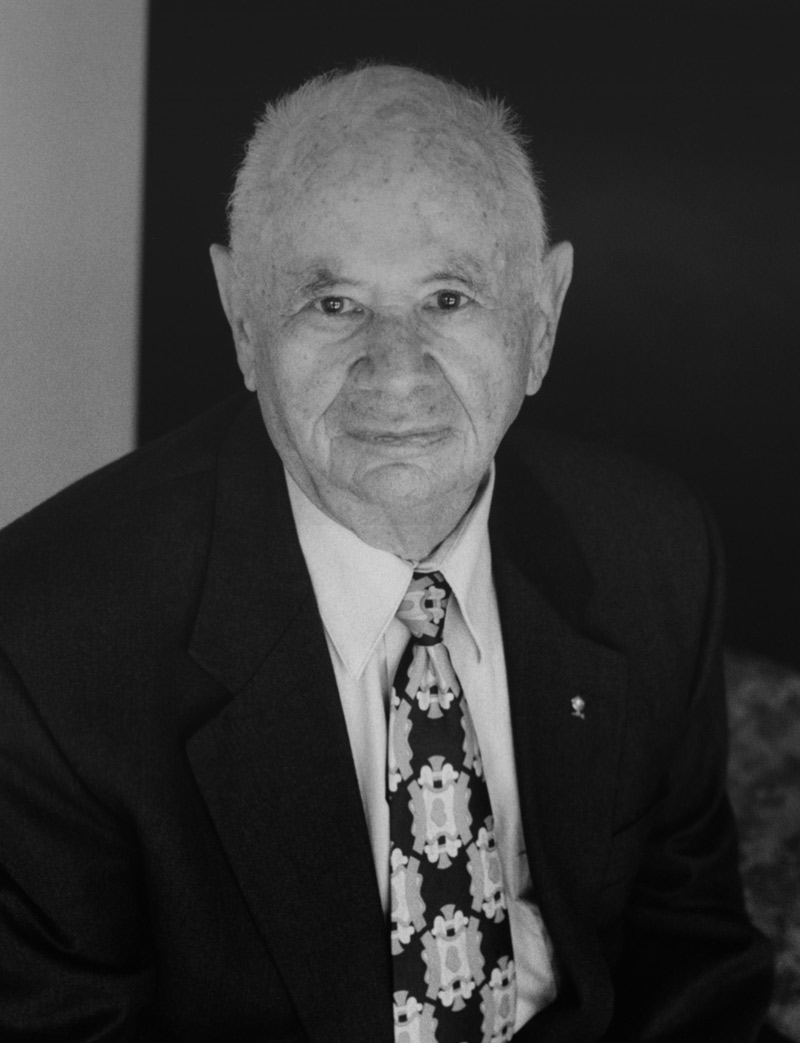
October 28, 1919
Birthplace: Krosno, Poland
Holocaust Experience: Fought with the Polish partisans.
Sol Berger Z"L
“I fought for my life and I won.”
Sol Berger was born Solomon Berger to parents Jacob and Rose on October 28, 1919, in the small town of Krosno, Poland. He was the second youngest of nine children, and in 1922, while three of his older sisters emigrated from Poland to the United States, the rest of the family stayed in Poland. As a teenager, Sol joined a right wing Zionist movement, and in 1938, he went to a camp to train for Irgun Zvi Leumi, a Jewish military organization, which planned to send boys to Palestine to fight for an independent Jewish state. However, Poland stopped issuing exit visas when Sol was still too young to register for a visa, so he was unable to get to Palestine.
When Germany invaded Poland in 1939, Sol and his family, along with about 3 million other Polish Jews, became part of occupied Germany. All Jews had to wear a Star of David on their arms, and Jews between the ages of 15 and 45 were put to work as slave laborers. Sol tried to resist the Nazis by not showing up to work, but the Gestapo came and arrested him. After being interrogated and beaten for two hours, the Nazis left. Sol escaped and went into hiding for three weeks at a nearby Jewish home. However, as soon as he returned to Krosno, the Gestapo re-incarcerated him in a Polish political prison for six months. Sol shared a cell with 10 Polish Christian political prisoners, including a Roman Catholic priest, who taught Sol about Catholicism. That newfound knowledge of Catholicism would be vital in helping him survive while he pretended to be a Christian Pole. Sol was released from prison when his parents bribed the Gestapo with a large amount of money. He was immediately put back into the slave labor division where his three brothers still worked.
Read More
Sol was eventually sent to the Krosno Ghetto, where he procured false Christian identification papers for himself and his brothers. They all wanted to escape from the ghetto and join the Polish partisans by pretending to be Christian Poles. However, before this could happen, the situation worsened.
On August 9, 1942, the German’s ordered all the Jews to assemble at the marketplace for deportation and resettlement. Twenty-five hundred Jews were rounded up in the Krosno marketplace, including Sol’s remaining family members. Sol’s father was included in the first group of people who were separated, taken into the nearby forest, and shot. Sol’s mother and sister were put on a train to Belzec Concentration Camp where they were immediately gassed. However, Sol and his three brothers, along with 600 other young men, were chosen by the German military and sent back to the Krosno Ghetto to work.
One day, while returning from work, Sol and his brother, Joshua, saw numerous SS men on the streets. They suspected that there would be another deportation taking place soon, so they decided to go into hiding. They hid separately; Joshua was found and sent to a concentration camp; Sol was not found, escaped the ghetto and stayed in hiding for 3 days. When the ghetto was liquidated on December 3, 1942, Sol escaped and joined a Polish partisan group under the Christian Polish identity of Jan Jerzwoski. In April of 1944, the Polish partisans were inducted into the Soviet Army.
In the beginning of May, Sol was given leave from the Soviet Army and started to travel around Poland in search of his remaining family members. He met a Jewish girl, Gertrude (Gusta) Friedman, whom he asked to immigrate with him to Palestine. On May 18, 1945, Sol and Gusta were married after knowing each other for only two weeks. Although they could not get a ship to Palestine, they lived in a Displaced Persons camp in southern Italy for three years. Though they still were in contact with Sol’s sisters in America, they could not get visas. So, in 1948, they immigrated to London where they lived for two years. In 1950, they finally immigrated to America. Sol and Gusta have been married for 65 years, have two children, Jack and Marlene, four grandchildren, and three great-grandchildren.
When Michael, Sol’s brother, was dying of lung cancer, he asked Sol to take his place speaking at the Museum of Tolerance, and Sol began speaking in 1992, sharing his testimony of courage and survival.
Z”L stands for the Hebrew words meaning “may his/her memory be a blessing.”